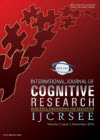GENDER-BASED DIFFERENCES IN SCHOOL-AGED CHILDREN’S DIVERGENT THINKING
GENDER-BASED DIFFERENCES IN SCHOOL-AGED CHILDREN’S DIVERGENT THINKING
Author(s): Leah C. RoueSubject(s): Adult Education, ICT Information and Communications Technologies
Published by: Удружење за развој науке, инжењерства и образовања
Keywords: Divergent thinking; Gender; Creativity; Science and engineering; Wallach and Kogan Creativity Test (WKCT);
Summary/Abstract: This study examines whether the shortage of females in science and engineering is linked to possible gender-based differences in school-aged children’s divergent thinking. Divergent thinking is a direct measure of creativity and an important characteristic in science and engineering. A survey instrument designed to measure divergent thinking was administered to 8th and 11th graders in a mid-western United States school district. Results showed that there were no difference between girls and boys on the three measures of divergent thinking: fluency, flexibility, and originality. These results indicate little reason as to why participation in science and engineering is male dominated, and support the notion that additional exposure to science and engineering through divergent-thinking activities will provide girls with the self-knowledge that they are capable of solving open-ended problems and engineering tasks.
Journal: International Journal of Cognitive Research in Science, Engineering and Education (IJCRSEE)
- Issue Year: 2/2014
- Issue No: 2
- Page Range: 1-6
- Page Count: 5
- Language: English

